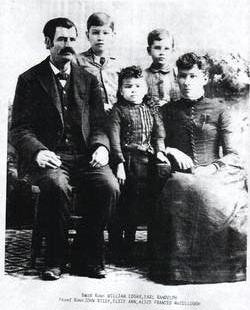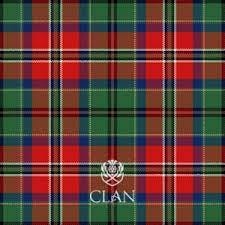This is my wife’s paternal line - which reminds me:
SIDE NOTE: If you’re a genealogist/family historian, I hope you’re not using “mother’s maiden name” in your security questions for any of your sensitive online accounts. Because it is distressingly easy to learn that information, even if nobody posts it on their family history blog! Besides, in most situations, the account asking for your mother’s maiden name as a security measure isn’t going to verify your ancestry, anyway. So you could tell them your mother’s maiden name is Vanessa Doofenschmirtz, and they won’t know.
Anyway - back to the Reunion.
James McCullough (1804–1864) is as far back as I have been able to go, so far. He was born in Kentucky and married Nancy Ford (1807–1850) about 1829. They had two children in Montgomery County, Kentucky, before relocating to Rush County, Indiana, and then to Clay County, Indiana, where they raised seven children on a farm.
John Riley McCullough was their youngest son, born on 5 Mar 1848 in Clay County, Indiana. John enlisted in Company I of the 1st Regiment, Indiana Heavy Artillery Battery, and served garrison duty in Louisiana until his unit mustered out at Baton Rouge on 10 Jan 1866. He married Alice Frances Jones (1857–1921) on 4 Nov 1877 in Saint Johns Township, Harrison County, Iowa.

The McCullough family was the first family I researched outside of my own, and I was particularly interested in finding their Scottish origins. So far, 25 years later, I haven’t been able to find reliable documentary evidence of where James McCullough’s family originated, but I have read a great deal about the patterns of Scots-Irish migration to and through the New World, and we can guess, in general terms that they were part of that migration in the 1700s.

One thing I did learn is that the fun and exciting world of Scottish heraldry has little to do with family history research. A quick Google search can find a tartan belonging to the old McCullough clans, and you can find any number of sites repeating the same handfuls of facts about their allegiances and rivalries. If you go down that rabbit hole, there is a lot of interesting history to discover, but unless you can find a documentary chain of evidence tracing your ancestors through two centuries of disruption and migration, you are just speculating about your personal connection to that history.
And that’s fine.
A lot of Very Serious Historians will say very discouraging things about how misleading it is to claim a connection to the Clans - and they aren’t wrong about the academic value of doing that. There is much more to Scottish history than colorful cloth and fancy dress. But if you find that your curiosity and passion to learn are stirred by the color, pageantry, and folklore that has built up around these old families, there is nothing wrong with channeling that curiosity into your research.
Just don’t get carried away and confuse the legends, tales, and guesses with provable facts.


